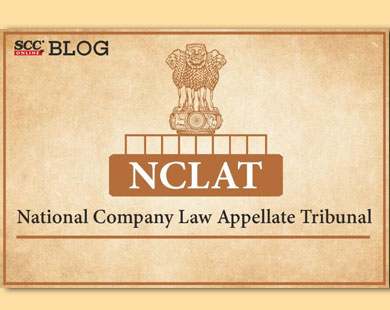National Company Law Appellate Tribunal: While deciding the appeal, the bench of Anant Bijay Singh, J., and Ms. Shreesha Merla (Technical Member), held that once the resolution Plan is submitted for approval, it is binding between the Committee of Creditors and the successful resolution applicant, unless there is any material irregularity or is against the provisions of Section 30(2) of the Insolvency and Bankruptcy Code, 2016, the Adjudicating Authority cannot interfere in its limited jurisdiction.
Background
In the case at hand the Committee of Creditors (“CoC”) approved the resolution plan and the application for approval of the resolution plan under Section 31 of the Insolvency and Bankruptcy Code, 2016 (“Code, 2016”) was filed before the Adjudicating Authority. Later, the Adjudicating Authority directed the Resolution Professional (“RP”) to consider the new resolution plan of M/s. Hindustan Coils Limited (“HCL”), which is challenged by the appellant in this appeal. Further, CoC filed an application to withdraw their approval after more than two years of its approval.
Issue:
Whether the CoC after approving the resolution plan can seek direction to consider the new resolution plan of a third party who was not a part of the Corporate Insolvency Resolution Process (“CIRP”) and seek to withdraw their approval after more than two years of the approval of the first resolution plan?
Law, Analysis and Decision
The Tribunal placed reliance on ‘Ebix Singapore Pvt. Ltd.’, in which it was held that strict timelines must be adhered to and that the Adjudicating Authority lacks the authority to allow the withdrawal/modification of the resolution plan by the successful resolution applicant (“SRA”), as this would defeat the very objective of the statute.
The Tribunal stated that the effect of the CoC seeking withdrawal of an already approved resolution plan would have identical repercussions with respect to timelines as the same would have the effect of restarting the CIRP from the valuation stage when all the statutory timelines have long since been exhausted. The principle with respect to ‘timelines’ is applicable to the facts of this case.
The Tribunal further stated that at the cost of repetition, it is crystal clear that any modification or a withdrawal after approval by the CoC and submission to the Adjudicating Authority, ‘irrespective of the content’ of the terms envisaged by the resolution plan, would only lead to further delay and defeat the very scope and objective of the Code. The existing framework does not provide any scope for effecting any further modifications or withdrawals of the CoC approved resolution plan by the SRA or the Creditors. The Adjudicating Authority can interfere only if the resolution plan is against the provisions of the Code, 2016. Once the resolution plan is submitted to the Adjudicating Authority, it is binding and irrevocable as between the CoC and the SRA in terms of the provisions of the Code, 2016.
The Tribunal held that the contention of the respondent that the Code, 2016 provides for ‘Maximisation of the Value of Assets’ and therefore a higher value offered is to be considered, is untenable, as the maximum timeline permissible for completion of the said process has lapsed.
The Tribunal further reiterated that the ‘Maximisation of Value of Assets’ ought to be ‘within the specified timelines and if it is not a timebound process, the entire scope and objective of the Code, 2016 would fail merely because there is another higher offer made by a third party
Thus, the Tribunal held that once the resolution plan is submitted for approval, it is binding between the CoC and the SRA, unless there is any material irregularity or is against the provisions of Section 30(2) of the Code the Adjudicating Authority cannot, in its limited jurisdiction, interfere.
[Kalinga Allied Industries India Private Limited v. Committee of Creditors, 2022 SCC OnLine NCLAT 1618, decided on 19-12-2022]
Advocates who appeared in this case :
Advocates for Appellants: Advocate Abhijeet Sinha, Advocate Rakesh Wadhwa;
Advocates for Respondents: Advocate Mohit Nandani, Advocate Mukesh Kumar.



